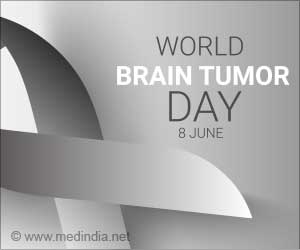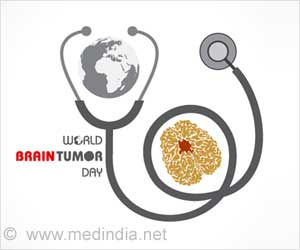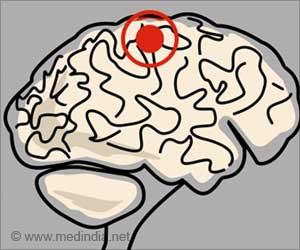World Brain Tumor Day raises awareness, promotes research, and supports those affected by brain tumors, aiming to improve patient outcomes.
- Early detection of brain tumors significantly improves treatment options and outcomes
- World Brain Tumor Day promotes vital research and public awareness about brain health
- Support for patients and families is crucial in managing the emotional and psychological impact of brain tumors
World Brain Tumour Day
Go to source). This day serves as a reminder of the importance of early detection, advanced medical research, and support for those affected by brain tumors.
History and Significance of World Brain Tumor Day
World Brain Tumor Day was initiated by the German Brain Tumor Association (Deutsche Hirntumorhilfe e.V.) in 2000. The day was established to draw public attention to brain tumors and the challenges faced by patients and their families. The association recognized the need for increased awareness and research to improve the quality of life for those affected by brain tumors.The significance of World Brain Tumor Day lies in its ability to unite people across the globe in the fight against brain tumors. By raising awareness, we can encourage early diagnosis, support ongoing research, and ultimately improve outcomes for patients. The day also serves as an opportunity to honor the memory of those who have lost their lives to brain tumors and to offer support to survivors and their families.
What are Brain Tumors?
A brain tumor is an abnormal growth of cells within the brain or the central spinal canal. Brain tumors can be either benign (non-cancerous) or malignant (cancerous). Malignant tumors are more aggressive and can spread to other parts of the brain or body, making them particularly dangerous (2✔ ✔Trusted SourceBrain and Spinal Cord Tumors
Go to source).
What are the Types of Brain Tumors?
- Primary Brain Tumors: These originate within the brain and include gliomas, meningiomas, pituitary adenomas, and others.
- Secondary (Metastatic) Brain Tumors: These tumors originate in other parts of the body and spread to the brain. They are more common than primary brain tumors.
Symptoms of Brain Tumors
Symptoms of brain tumors vary depending on the tumor's size, location, and rate of growth. Common symptoms include (3✔ ✔Trusted SourcePresenting signs and symptoms in brain tumors
Go to source):
- Persistent headaches
- Nausea and vomiting
- Seizures
- Vision or hearing problems
- Cognitive or personality changes
- Difficulty with balance or coordination
- Weakness or numbness in limbs
How is Brain Tumor Diagnosed?
Diagnosing a brain tumor typically involves several steps, including (4✔ ✔Trusted SourceEpidemiology and diagnosis of brain tumors
Go to source):
- Neurological Exam: Assessing vision, hearing, balance, coordination, and reflexes.
- Imaging Tests: MRI and CT scans are commonly used to visualize the brain and detect abnormalities.
- Biopsy: A sample of the tumor tissue is taken to determine the type and grade of the tumor.
Treatment of Brain Tumor
The treatment of brain tumors depends on various factors, including the type, size, and location of the tumor, as well as the patient’s overall health. Common treatment options include:- Surgery: The goal is to remove as much of the tumor as possible. In some cases, surgery may not be feasible due to the tumor's location.
- Radiation Therapy: High-energy beams are used to target and kill tumor cells. This can be used alone or in combination with other treatments.
- Chemotherapy: Anti-cancer drugs are used to kill tumor cells. This treatment can be administered orally or intravenously.
- Targeted Therapy: These drugs specifically target cancer cells without harming normal cells.
- Immunotherapy: This treatment boosts the body’s immune system to fight the tumor.
Importance of Raising Awareness About Brain Tumor
World Brain Tumor Day plays a critical role in promoting awareness and research. Awareness leads to early detection, which is crucial for improving patient outcomes. Early diagnosis often means more treatment options and a better chance of successful management.Public awareness campaigns can educate people about the signs and symptoms of brain tumors, encouraging them to seek medical attention promptly. Increased awareness can also reduce the stigma associated with brain tumors, providing much-needed support to patients and their families.
Research About Brain Tumor
Research is essential for understanding the causes of brain tumors, developing new treatments, and improving existing ones. Funding for research can lead to breakthroughs in diagnosis, treatment, and patient care. On World Brain Tumor Day, various organizations and institutions host events, seminars, and fundraising activities to support brain tumor research.Support for patients and families is another critical aspect of World Brain Tumor Day. Coping with a brain tumor diagnosis can be overwhelming, and providing emotional, psychological, and financial support is essential. Support groups, counseling services, and educational resources can help patients and their families navigate the challenges of living with a brain tumor.
Celebrating World Brain Tumor Day
There are several ways you can get involved in World Brain Tumor Day and support the cause:- Participate in Events: Join local events, walks, or runs organized to raise awareness and funds for brain tumor research.
- Donate: Contribute to organizations dedicated to brain tumor research and patient support.
- Spread the Word: Use social media platforms to share information about brain tumors and the importance of early detection.
- Volunteer: Offer your time and skills to support brain tumor awareness campaigns and patient support programs.
- Educate Yourself: Learn about brain tumors, their symptoms, and treatment options to better understand and support those affected.
References:
- World Brain Tumour Day - (https://givecmc.org/world-brain-tumour-day/)
- Brain and Spinal Cord Tumors - (https://www.ninds.nih.gov/health-information/disorders/brain-and-spinal-cord-tumors)
- Presenting signs and symptoms in brain tumors - (https://pubmed.ncbi.nlm.nih.gov/26948346/)
- Epidemiology and diagnosis of brain tumors - (https://pubmed.ncbi.nlm.nih.gov/25837897/)
Source-Medindia
















